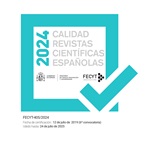Bank melli Iran: the Court of Justice boosts the EU blocking statute at the expense of the freedom to conduct business. (RI §424862)

Bank melli Iran: el Tribunal de Justicia refuerza el reglamento de bloqueo a expensas del derecho a la libertad de empresa -
Trajan A. Shipley Gozalo
This case note examines the Court of Justice’s judgment of 21 December 2021 in Bank Melli Iran, in which it gave for the first time an authoritative interpretation of the EU Blocking Statute. It first looks into the background and the key provisions of the Statute, which gained prominence following the U.S. withdrawal from the Iran Nuclear Deal. It then summarizes the Opinion of Advocate General Hogan and the Court of Justice’s judgment, both interpreting the Statute broadly albeit with different reasoning on some issues, and analyzes its implications and shortcomings. In the commentary section, the case note examines the Court’s assessment of the respect for the essence of the freedom to conduct business under Article 16 of the Charter of Fundamental Rights and the parallelisms with the Schrems case-law.
I. INTRODUCTION II. THE OPINION OF THE ADVOCATE GENERAL. 1. The prohibition to comply. 2. The allocation of burden of proof in proving non-compliance. 3. Effectiveness and proportionality of the prohibition to comply. III. THE COURT OF JUSTICE’S JUDGMENT. 1. The prohibition to comply: no need for mandatory decisions from third-country authorities. 2. Reversal of the burden of proof in civil proceedings relying on the Blocking Statute as a defense. 3. The compatibility with the freedom to conduct business and the proportionality test. IV. COMMENTARY: A WATERED-DOWN SCHREMS MOMENT?
Este comentario analiza la sentencia del Tribunal de Justicia de 21 de diciembre de 2021 en el asunto Bank Melli Iran, en la cual dio la primera interpretación autoritativa del Reglamento de Bloqueo de la UE. Se analiza primero el contexto y las principales disposiciones del reglamento, que adquirió relativa importancia tras la retirada de EE. UU. del Acuerdo Nuclear con Irán. Posteriormente, el comentario resume las conclusiones del Abogado General Hogan y de la sentencia del Tribunal, ambas partidarias de una interpretación extensiva del reglamento a pesar de sus respectivas diferencias en cuanto al razonamiento, y analiza sus implicaciones y limitaciones. En la sección de análisis, el comentario examina la apreciación del Tribunal en cuanto al respeto del contenido esencial de la libertad de empresa en virtud del artículo 16 de la Carta de Derechos Fundamentales, así como los paralelismos de la sentencia con la jurisprudencia Schrems.

 DIRECCIÓN / MANAGEMENT
DIRECCIÓN / MANAGEMENT